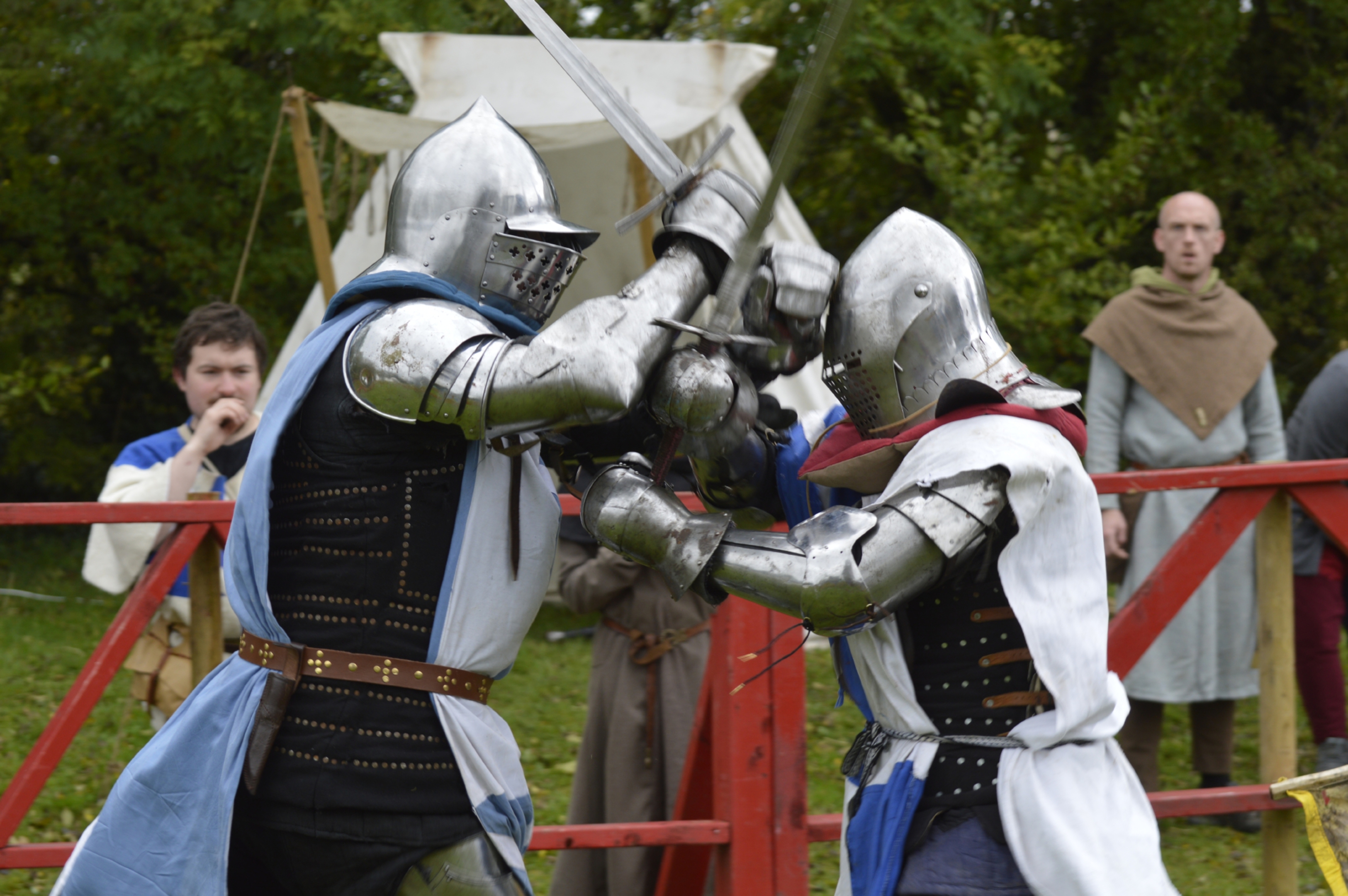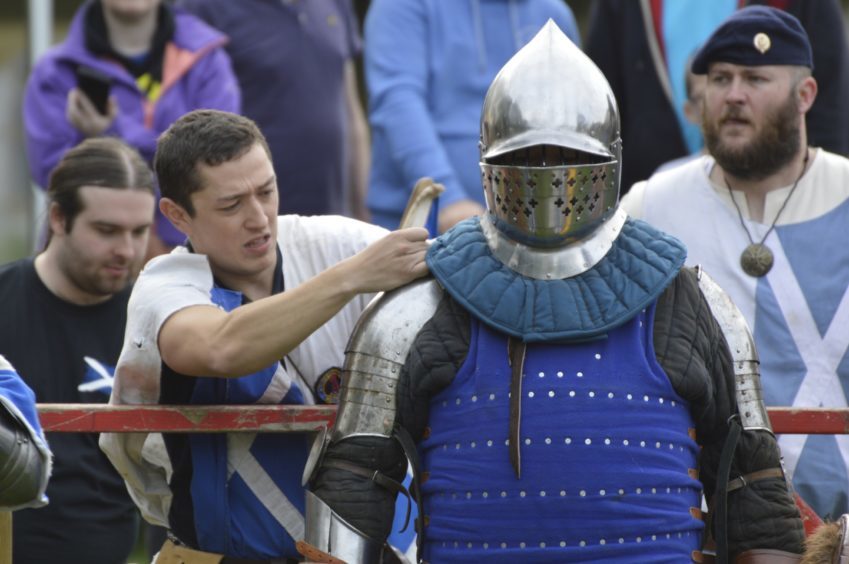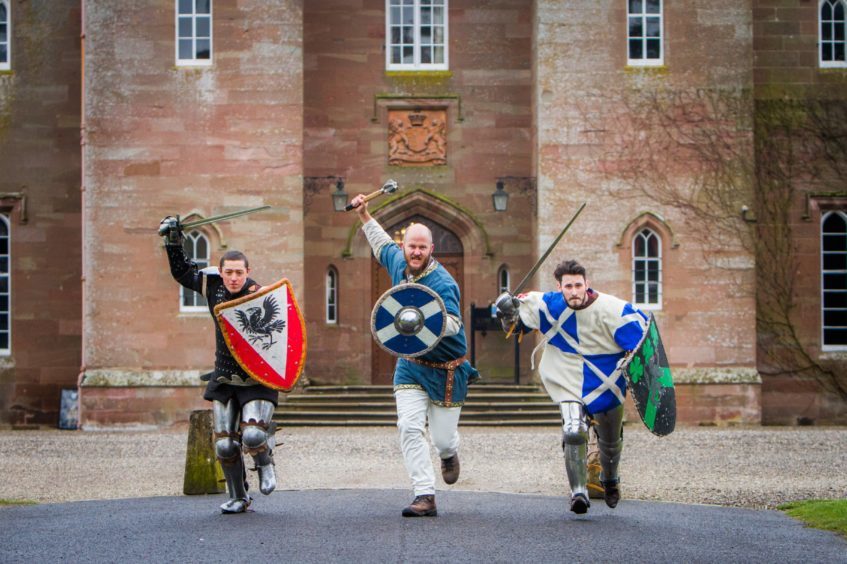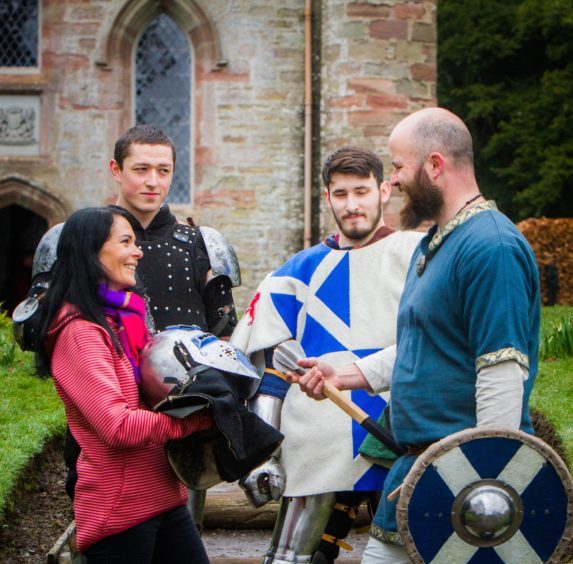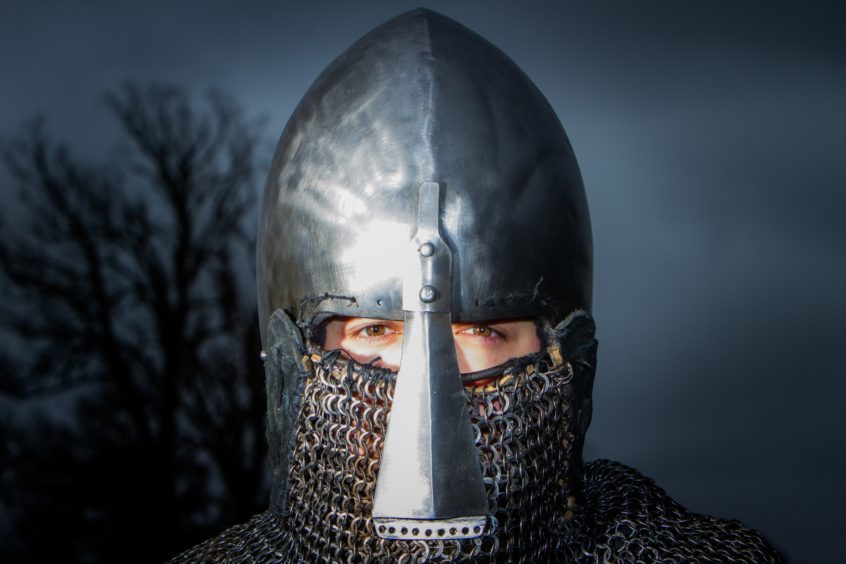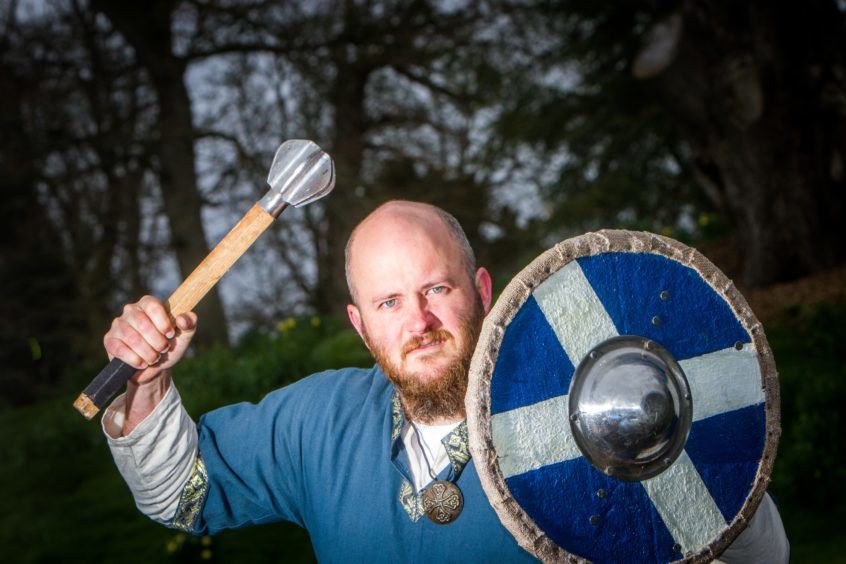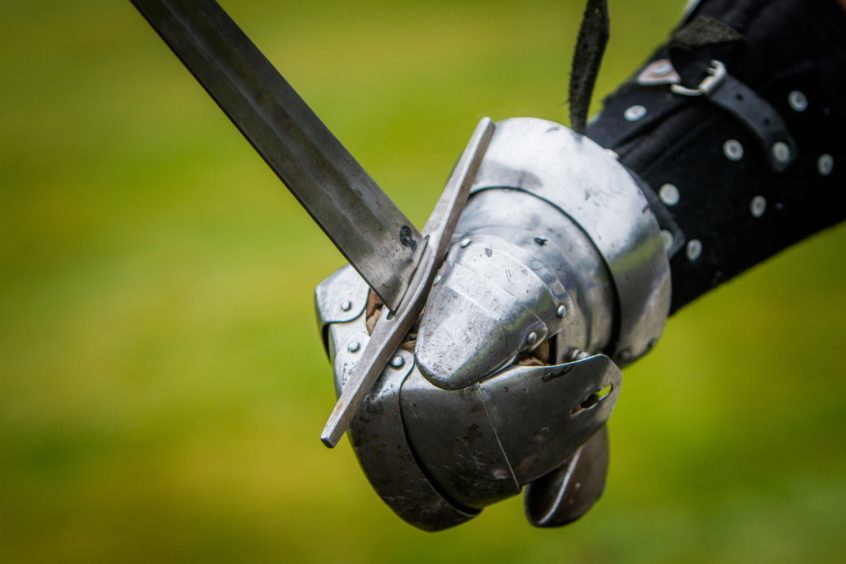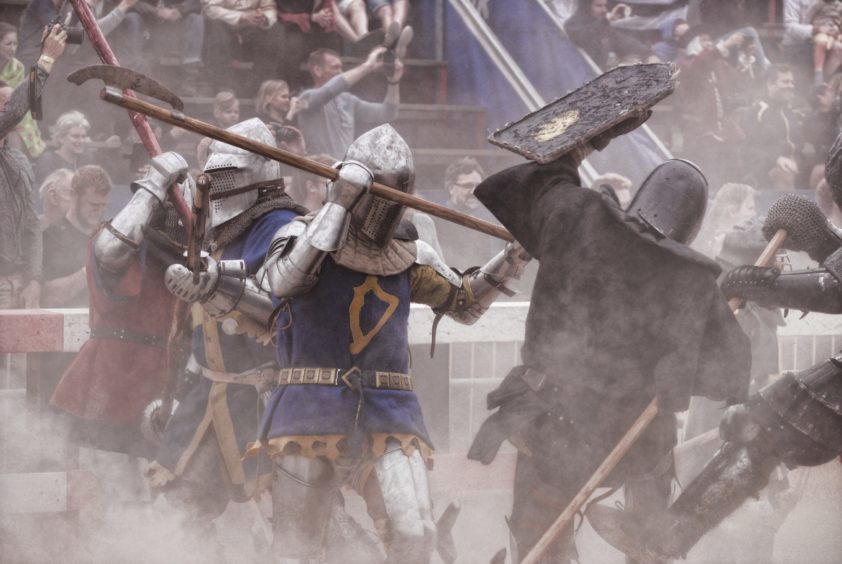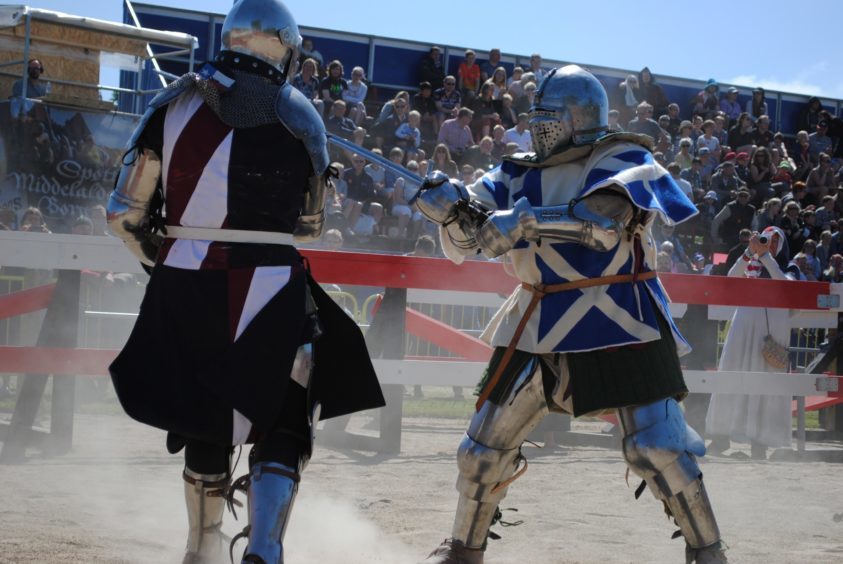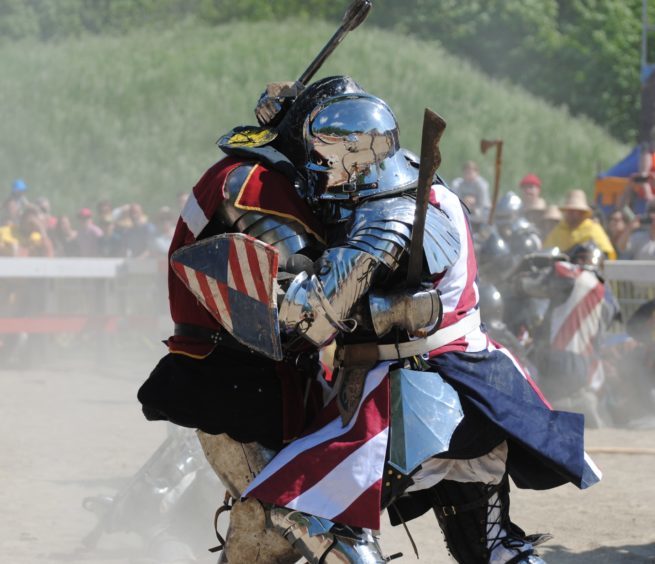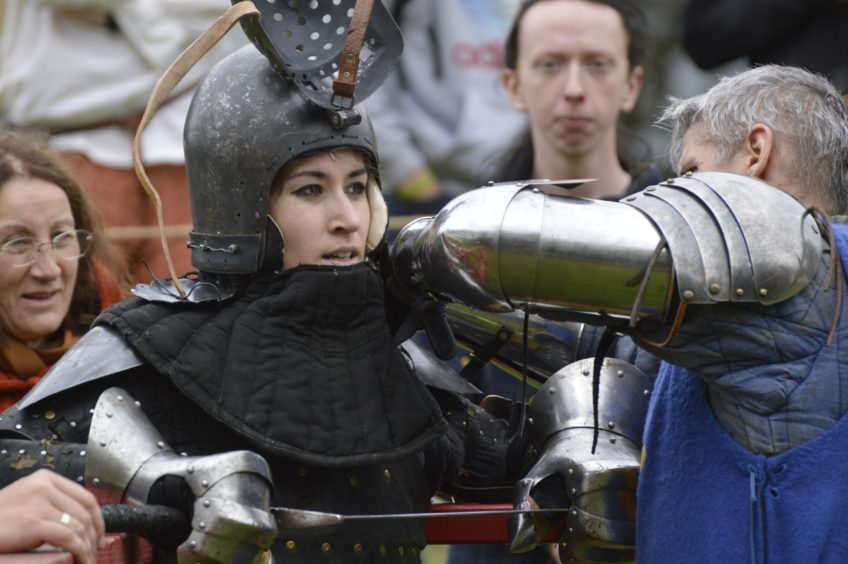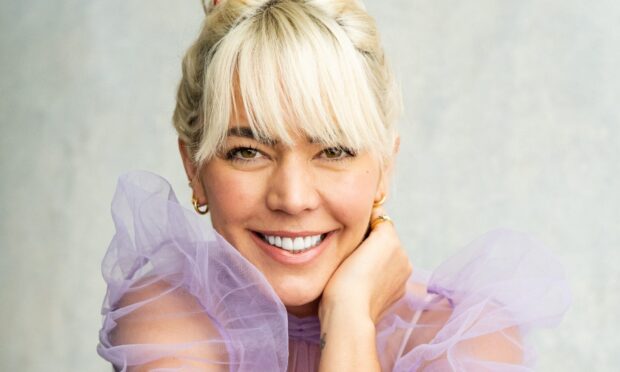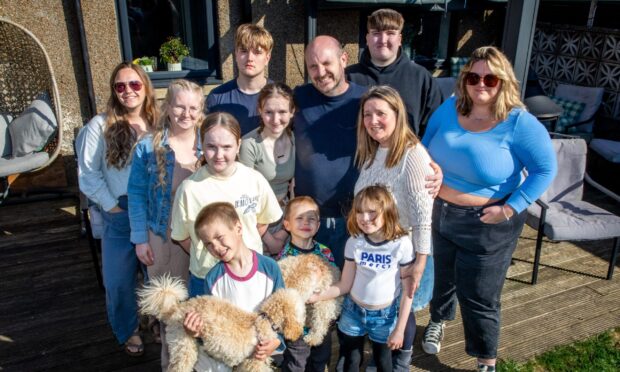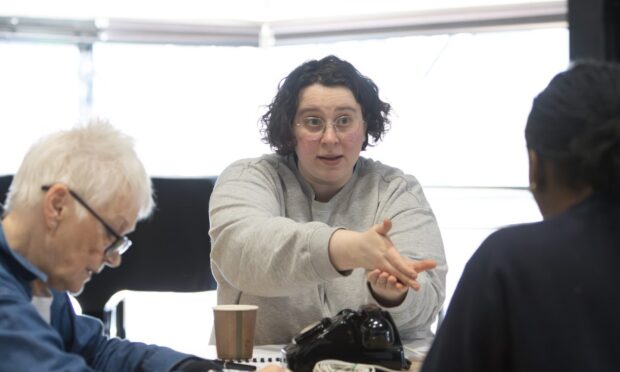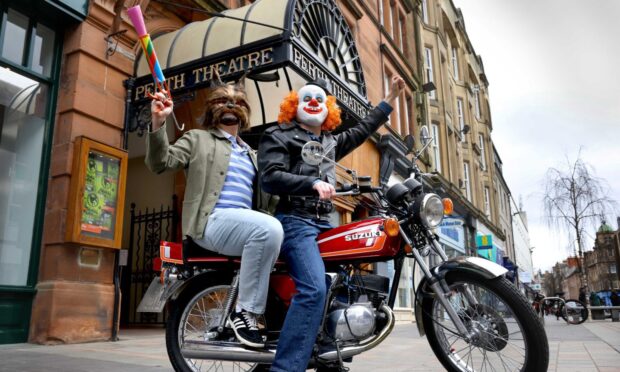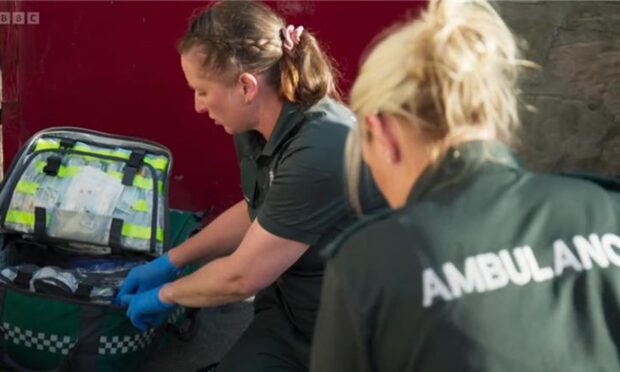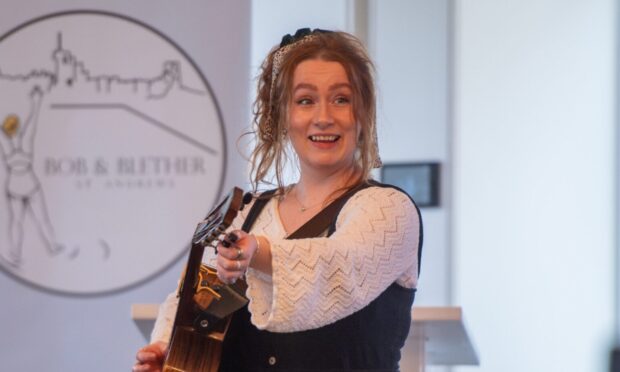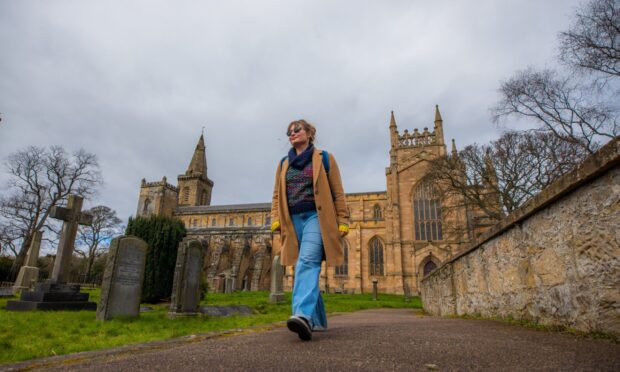Swords will clash and teeth will gnash when 500 armoured warriors compete in the International Medieval Combat Federation World Championships at Scone Palace. Ahead of the event, from May 10 to 13, Gayle Ritchie meets a group of knights in shining armour…
Battleaxes, longswords and fists encased in steel glint menacingly in the early morning light and a group of knights stand sweating in the sun.
Facing their opponents with weapons raised in salute, a bellowing challenge roars across the field.
Swords clash and clank, shields strike, and a less fortunate knight reels from the impact, staggers backwards and falls to the ground.
Standing over his vanquished opponent, the victorious fighter raises his weapon to the sky, inciting wild cheers from the crowd.
Turn up at the International Medieval Combat Federation (IMCF) World Championships at Scone Palace – a four day contest which features full-contact medieval battles, duelling, team fights and archery – and you can witness the spectacle for yourself.
With more than 500 fighters from 31 countries competing, it will be the first time the colourful event has taken place in the UK.
Ahead of the contest, I’m lucky enough to be invited along to a training session at the palace with members of the Scottish Knight League (SKL), the national team of Scotland for all full contact medieval tournaments.
It’s scary and very dangerous stuff. The weapons are real and everyone has a tale to tell of injuries they’ve suffered either during combat or in the act of simply putting on their armour.
“The kit weighs around four stone,” chirps Joe Partridge, dragging on a helmet and flexing his steel-clad legs.
“It gets hot pretty quickly when you’re fighting and even just standing around is quite taxing.”
Passing me a spare helmet, which I reluctantly put on, I instantly feel claustrophobic.
You can barely see a sodding thing through the tiny slit and peripheral vision is impossible.
How on earth can you tell when an opponent is creeping up on you?
“You might give a couple of strikes with your weapon then look around you,” says Joe, 24.
“I guess you get used to wearing it and get a feel for what’s happening around you.
“You develop a better sense of hearing, and you kind of know when someone is about to strike you, or you hope you do!”
There will be 15 fighters in this year’s Scottish team and they hail from a variety of backgrounds.
Joe has spent the winter working at a ski hire centre and is a talented craftsman who makes shields and armour in his spare time.
“I’ve always been into medieval fighting video games and I’m a fan of Vikings, the TV series,” he tells me.
“I looked online, checked out re-enactments, and started getting ideas about how to build shields myself.
“A friend who was into fencing flagged up SKL and I sent them my ‘CV’ of shields and asked how I could get involved.
“I went along to a demo where someone put armour on me and told me to hit a guy. I thought it was so cool. Then I went to Perth Medieval Fayre and attacked the captain of the Edinburgh SKL team.
“It was quite tiring – the kit is so heavy – and I knew, even though I was strong through powerlifting six days a week, I needed to work on my cardio.
“It’s a great multisport and has a fantastic social element, with us meeting up for beer, food and chat. I love how I can apply my craft to the sport, and I really like the look!”
Jacob Pothecary, 25, is keen that I have a bash at thrashing Joe (poor lad) so I wield a battleaxe and go for it like a pathetic weakling.
For some, it’s therapeutic – getting rid of pent up anger and stress and all that – but it goes against my instincts to hit someone; I’d feel more comfortable if Joe was an inanimate object.
“Won’t that hurt his head?” I plead, as I lob the axe against his helmet.
“Nah, go harder,” encourages Jacob, who then gives me a demonstration of how to slash and wallop with finesse and showmanship.
Josh Emmerson, 32, a trained goldsmith and an imposing hulk of a man, tells me some warriors have been concussed, or suffered headaches after tournaments, although this is rare.
More likely, they come away with bruising and the odd scratch, much as with any full-contact sport.
So what compels these men (and a few women) to join SKL?
“I’ve always enjoyed history and the visually striking nature of medieval knights in armour, and my grandfather made wooden swords and shields for me and my brother,” says Josh, who is originally from Bermuda but now lives in Bankfoot.
“There’s a medieval society which does re-enactments with up to 10,000 people, with medieval villages and a load of ancient activies. I just really wanted to get into it, even on a smaller scale.
“When I moved to Scotland, I got in touch with SKL and joined in June last year.
“I’d done loads of military training in Bermuda – I was a Lance Corporal for the Royal Bermuda Regiment – so I was used to physical training, fitness and combat.
“It was my dream to be clad in armour and fight so I was overjoyed to take part in the Tournament of Destiny at Scone Palace in August 2017, and then at Thunder in the Glens in Aviemore.”
Josh got more into grappling – a key part of a duel – and “throw-downs” during group training.
“Achieving a dominant position on the ground is needed to land the ‘killing’ blow,” he explains.
“There are many ways to get someone down, whether by kicking them, grappling, tripping them up, or going behind and pulling them down. It’s great fun!
“But what I really I love is the camaraderie: we’re like one big family.”
Jacob, a hospitality worker originally from Shetland, agrees he feels a sense of belonging. “I found my niche with SKL,” he smiles.
“Your fitness improves, you meet great people from all over the world and you’re always learning and relearning history.
“The medieval tournament was a form of combative competition between knights during the medieval period, from the 12th century to the mid-17th century; mock combats that were training for war.
“Knights were the Ronaldos of the day and were usually trained for these positions as children.
“We’re a sports revival movement, here to return a form of competition – medieval combat – that hasn’t been practised in 400 years, to the world stage.”
In terms of training, there’s a lot you can do to get “fight-ready”.
The lads cite cross-fit, boxing, and martial arts as their main inspirations, but the great thing is that everyone is welcome – from total amateurs to the highly experienced.
“Don’t wait for your knight in shining armour – become one!” beams Jacob.
“We‘re keen for men and women at all levels to get involved and compete in acts of martial prowess in the 21st century.
“Everyone excels at different elements; some are fast, some are flexible, some are more skilled with their chosen weapon – everyone has their forte.”
The fighters are proud to tell me that the IMCF has had no reports of serious injuries since its inception five years ago. But there’s no avoiding the fact that it boasts an element of risk.
As if to cement this, fighter Liam McKenzie Lynch, 22, a bar supervisor from Edinburgh, trips during our photo shoot, and rams the sharp edge of his shield into his face.
Blood pours from a gash underneath his eye, and there’s a cut in his eye socket.
Unbelievably, Liam stands up, brushes himself off, and smiles. Meanwhile, I am wincing in the background.
“I’ve had worse!” he exclaims, as a first aider is summoned, and he is subsequently sent to A&E where his wounds are glued back together.
Later in the day, despite his injuries, he is out flyering on the streets of Perth flyering for the event. What a trooper!
As for women in the sport, indeed there are a few. One is the glamorously named
French-born Lara Servoille, previously a stunt horse rider, who has been fighting with Team Ireland since 2015.
She’s already had a huge impact, winning Ireland’s first ever gold medal at the IMCF World Championships in 2017, in women’s longsword.
Another woman obsessed by the sport is Bankfoot-based Louise Logan, the events and coordinations manager for the Scottish team.
“I guess you’d say I’m the power behind the throne!” she giggles, smoothing down her impressive quiff.
Like the lads, Louise is hugely excited about the Scone event, with at least 25,000 visitors expected.
“There’s nothing quite like a 6ft 4in hulk of a man swinging a battleaxe at an opponent’s head to get the crowd going wild,” she says.
“The Scottish team is still a small one so the sport here needs the visibility to attract new fighters and fans, to get ourselves firmly into the international medal tables.
“What’s amazing is the utmost respect these fighters have for each other.
“Before and after fights – where they try to pummel each other to the ground with axes and swords – hugs and good words are exchanged.
“And it’s not a game. All hits are real and given with the intent to finish the fight. Spectators are going to meet the love child of rugby and mixed martial arts but with metal objects!”
info
The International Medieval Combat Federation, (IMCF) is a global historical full contact sport fighting revival movement, in which combatants use historically accurate reproduction medieval and early modern armour and blunted weapons to engage in competitive fights according to authentic historical tournament rules. Battles take place in a traditional arena and range from one-on-one fights up to fights between two teams of 16. 2018 is the 5th IMCF World Championship since the event’s inception in 2014. There will be food and drink, music, medieval retailers, falconry, archery, children’s games, and a medieval encampment. The Scottish Knight League creates warriors to join the national team of Scotland for all full contact medieval tournaments. The League is made up of regional clubs in Shetland, Glasgow, Edinburgh and Perthshire.
For tickets and information, see scone-palace.co.uk/whats-on/international-medieval-combat-federation-world-championships
Also check out www.medieval-combat.net
